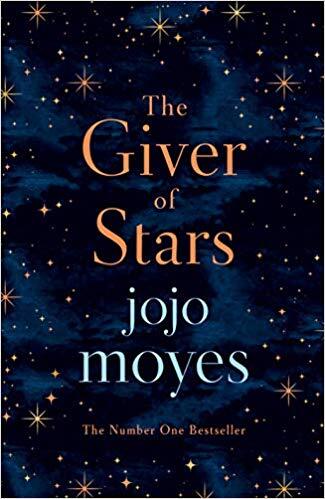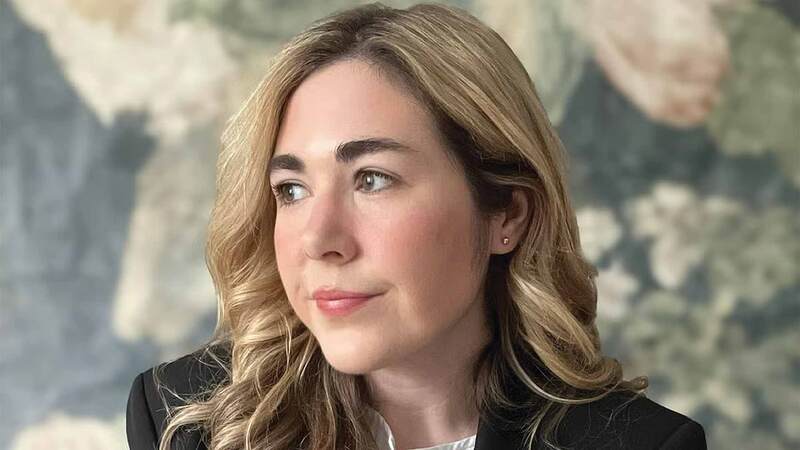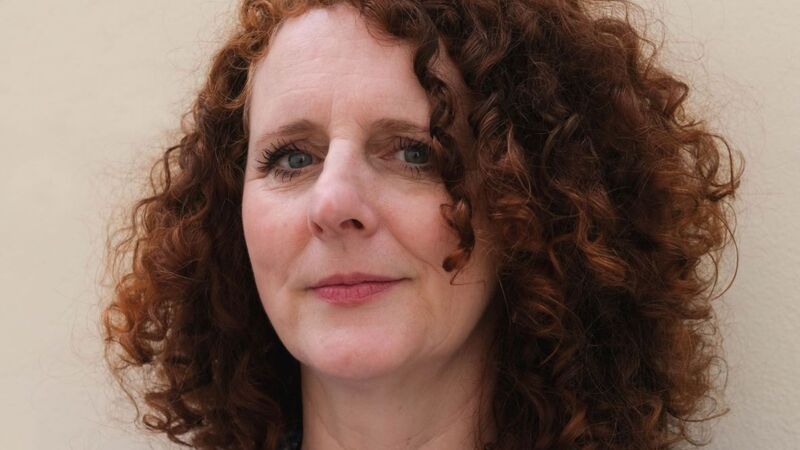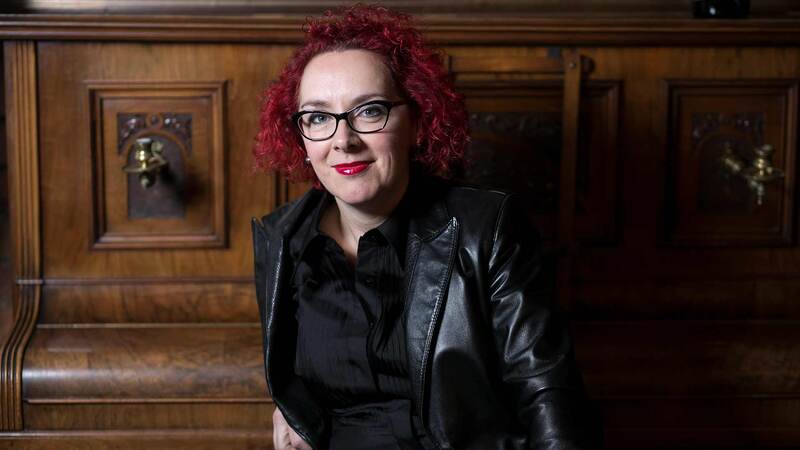You are viewing your 1 free article this month. Login to read more articles.
Jojo Moyes | 'I have to write this, this is mine'
The novel following Jojo Moyes’ hit trilogy Me Before You saw the author living deep in rural Kentucky to research a group of women librarians on horseback in the 1930s.
Jojo Moyes had been idly reading online two years ago when she came across a journal article containing black-and-white photos of women on horseback carrying books. The Smithsonian magazine article about the Pack Horse Library of Kentucky inspired The Giver of Stars, a sprawling homage to female friendship, bravery and books, set in the American Midwest in the 1930s. She says she has never "enjoyed writing a book like I’ve enjoyed writing this", writing it in a feverish nine-month period, with film rights snapped up before it had even reached her editor’s desk.
 "I love this book so much that you’ll find it hard to shut me up," she tells me as we begin our interview at her publisher Michael Joseph’s offices on the Strand. Previously the author had been mourning the end of the wildly successful Me Before You trilogy, which accounts for 63% of her total sales—a staggering £19.5m—through Nielsen BookScan UK, and triggered a 2016 film adaptation, which she worked on.
"I love this book so much that you’ll find it hard to shut me up," she tells me as we begin our interview at her publisher Michael Joseph’s offices on the Strand. Previously the author had been mourning the end of the wildly successful Me Before You trilogy, which accounts for 63% of her total sales—a staggering £19.5m—through Nielsen BookScan UK, and triggered a 2016 film adaptation, which she worked on.
It is her first historical novel since 2012, and Moyes reveals something spoke to her across almost a century from the Pack Horse Library’s members. "It was the pictures in the Smithsonian that stood out; these black-and-white pictures of women on horses against this astonishing mountainous landscape, laden with books, quite smartly dressed—with a neat blouse and tied-back hair—about to ride around 140 miles a week across extraordinary terrain."
Former Independent journalist Moyes leapt on the story with the territorial energy of a newshound after experiencing an instant connection with the subject matter.
"I had that visceral feeling where you immediately feel proprietorial about a story—‘I have to write this, this is mine’—and I had a three-month panic that someone else was going to write it. I think part of the reason I wrote it so quickly was because I worried that someone else would write it before me. But I loved everything about it... I have never enjoyed writing a book like I’ve enjoyed writing this. And I think it’s because it’s all my favourite things: books, librarians, horses, wild country."
Alice in chains
The novel sees fish-out-of-water English Rose Alice arrive in rural Kentucky with her handsome new husband. Her stifling boredom at having little to do but keep up appearances drives her to volunteer for the women’s travelling library, led by the local firebrand Margery O’Hare. Together with a group of other women—each experiencing an intense type of isolation in the small town of buttoned-up Baileyville—they deliver books through the most hostile and remote reaches of Kentucky.
The importance of books and literacy is something Moyes is particularly passionate about, having stepped in to save The Reading Agency’s Quick Reads scheme a year ago. On learning that the literacy programme was due to close after sponsorship withdrawal, she offered £360,000 to keep it afloat for three years. Moyes has
clearly spent a lot of time working on it behind the scenes, as well as financing it. "We’ve got a really diverse and interesting list [this year] and I’m really excited aboutlaunching it. We really went into detail into about what we thought would be the most interesting way forward for it."
While the book is told through several close third-person narratives, Moyes felt Alice’s "alien" nature, or "otherness", provided an ideal perspective to explore the foreign territory of sprawling rural 1930s Kentucky. As well as extensive research using academic journal catalogues such as Jstor ("I ended up with piles of stuff"), Moyes made three trips to the area, even staying alone in a remote, unlocked cabin. "I felt it would be an act of arrogance to try and write this book without being there. I rode the trails that the women would have ridden, deep into the mountains, which was amazing. I stayed in a tiny cabin, seven miles down a dirt track, by myself, and poked snakes with sticks and spoke to locals—and the first thing you learn about Kentucky is that they are storytellers. It’s a different way of being." She spent time with a formidable 72-year-old resident, Barbara Napier, whose self-reliance provided the blueprint for Margery. Moyes says of Napier: "She’s the absolute epitome of these characters... She once told a mountain lion to fuck off. She’s tiny but there is a fierce spirit."
Moyes started writing the story with the fiercely independent Margery in mind. "I really wanted Margery to be a woman who lived by her own rules. I wanted a woman who was comfortable enough in her own skin that she didn’t feel obliged to play the game... I think there’s part of me that wishes I hadn’t played the game. Margery is
the person I wish I’d been brave enough to be. I think I’m at that bolshie age now where I go, ‘Why? Why do I have to care what you think of me?’" Moyes is frustrated with the societal framing of women as competitors, rather than champions of each other. "If you look at the portrayal of the Duchess of Cambridge and Meghan Markle, everything is framed as a competition, and that’s just not my experience. And it’s not the experience of most women I know."
A modern touch
Despite its historical setting, The Giver of Stars features themes that are highly topical given the current political and economic uncertainty. "The library was [President] Roosevelt’s attempt to push back against snake oil salesmen and fundamentalism of all kinds. He believed in the importance of facts, he believed in the importance of reading, and to me it seemed a modern story. I read it and thought, ‘How much resonance for today can you have?’ There was a patriarchal push-back against the idea of women doing such a physical and dangerous feat, the solidarity of women, the importance of facts and knowledge in an era when truth was endangered by the Depression. People were so busy staying alive that they were perhaps not so interested in facts as they had been."
Moyes’ fascination with initially niche-seeming subjects has thrown publishers previously—Me Before You saw her switch publisher from Hodder to Michael Joseph because of its exploration of disability and assisted dying. "If you discuss this book in the wrong way, people aren’t interested. But if I’ve learned one thing over the years, it’s that if you have that gut feeling that this is a story you absolutely have to tell, and it’s all in there and there’s a fire in your belly about it, you have to tell that story. No matter how niche or bizarre it appears on the outside."
Book extract
The Packhorse Library had become, in the months of its existence, a symbol of many things and a focus for others, some controversial and some that would provoke unease in certain people however long it stayed around. But for one freezing, damp evening in March, it became a tiny, glowing refuge. Two people locked safely inside, briefly released from their complicated histories and the weighty expectations of the town around them, ate good food and laughed and discussed poetry and stories, horses and mistakes they had made, and while there was barely a touch between them, apart from the accidental brushing of skin against skin while passing bread or refilling a glass, Alice rediscovered a little part of her that she hadn’t known she’d missed: the flirtatious young woman who liked to talk about things she had read, seen and thought about as much as she liked to ride a mountain track.









